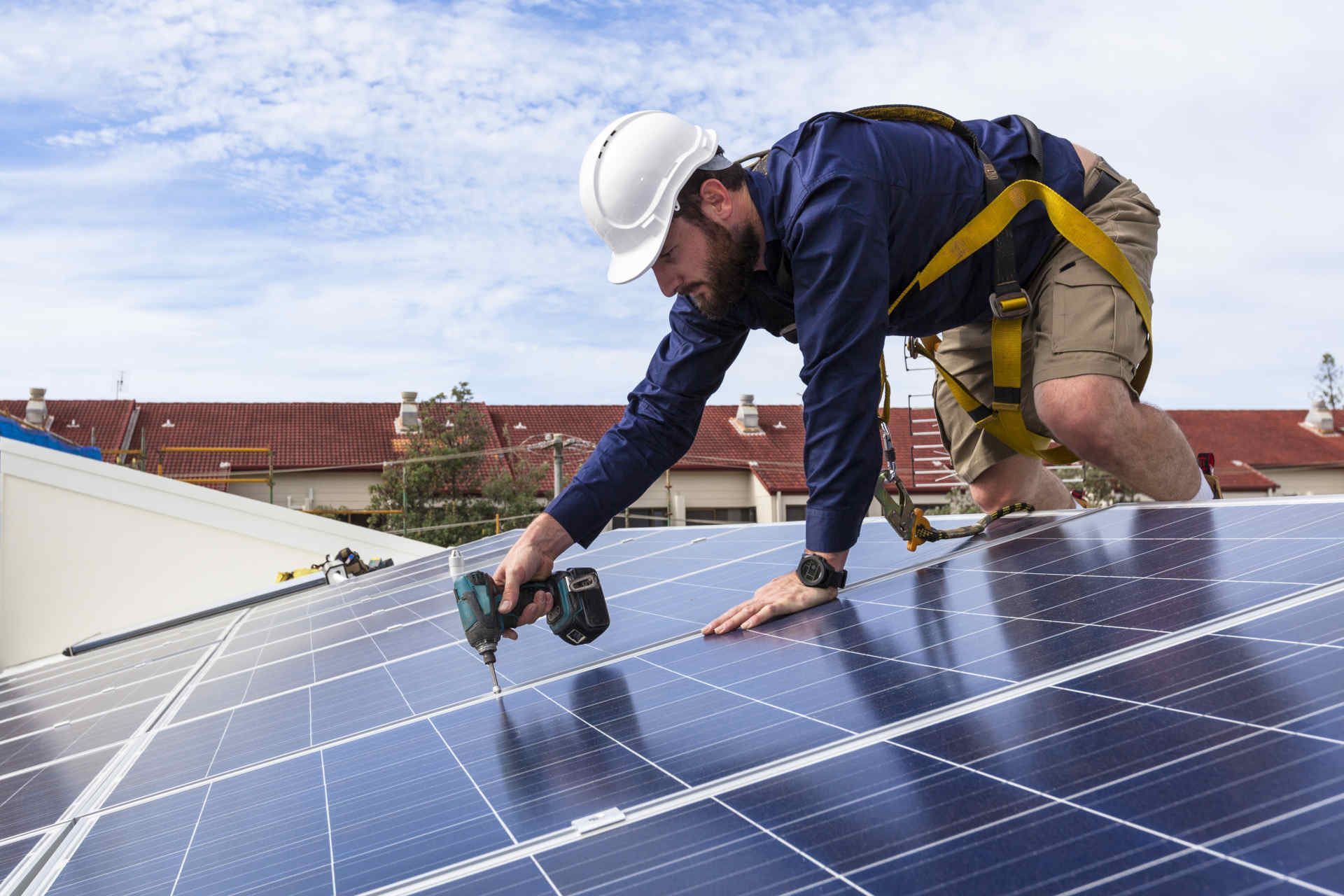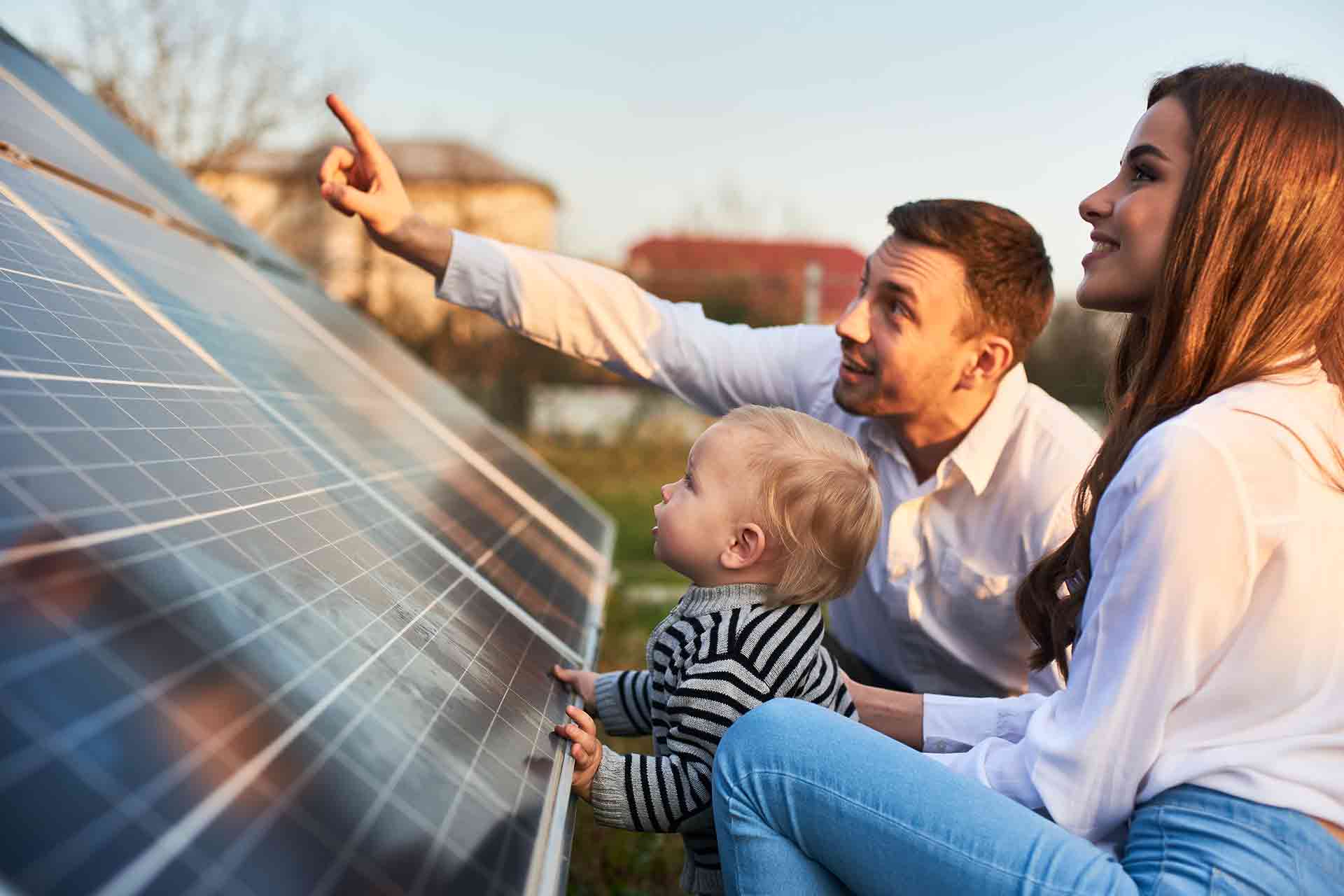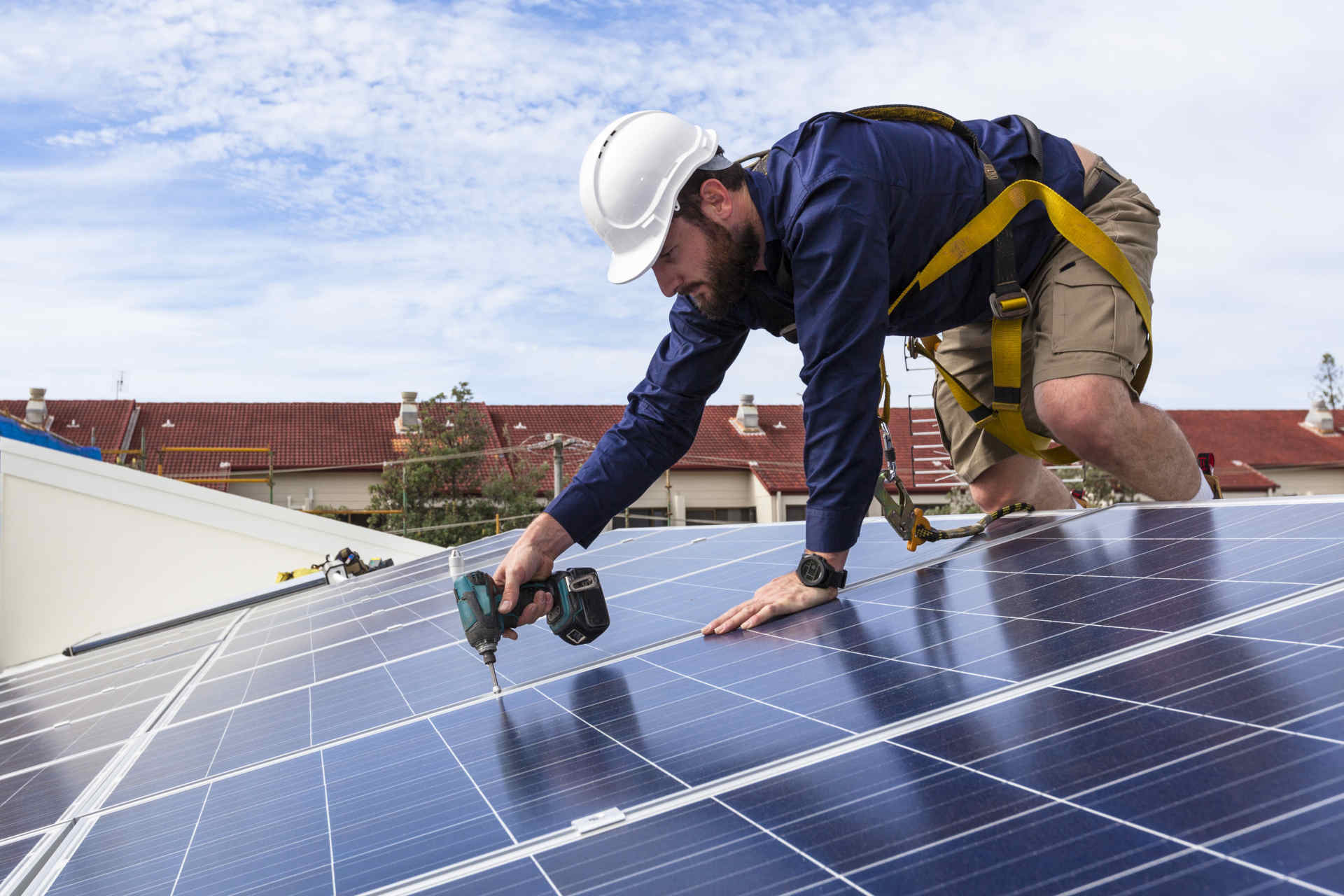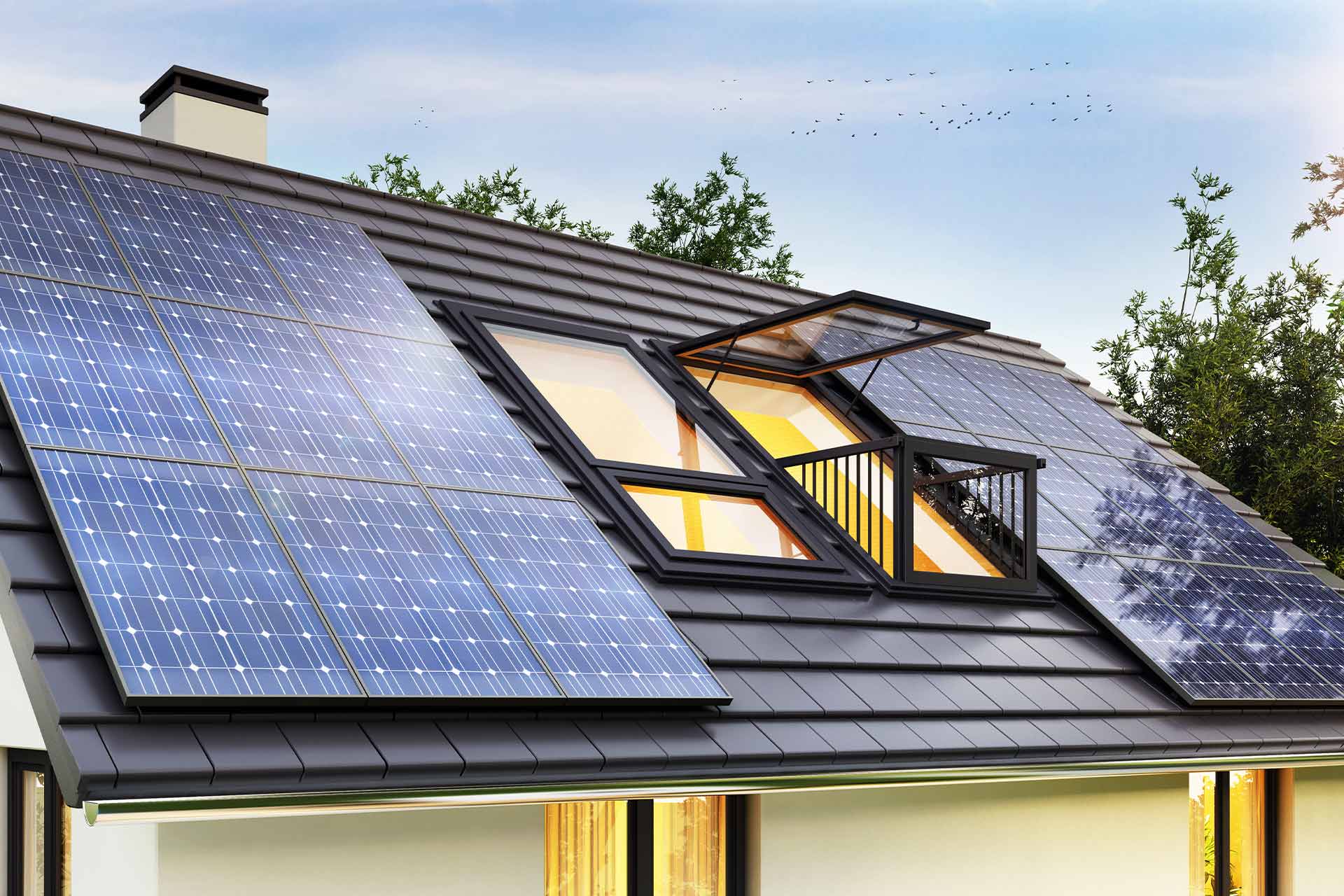Blog>Expert Advice>Are solar panels worth it?
Last updated: 4 July 2025
Are solar panels worth it?
Wondering whether solar panels are a good investment for your property? Here's all you need to know about costs, payback timescales, and key considerations before making your decision.
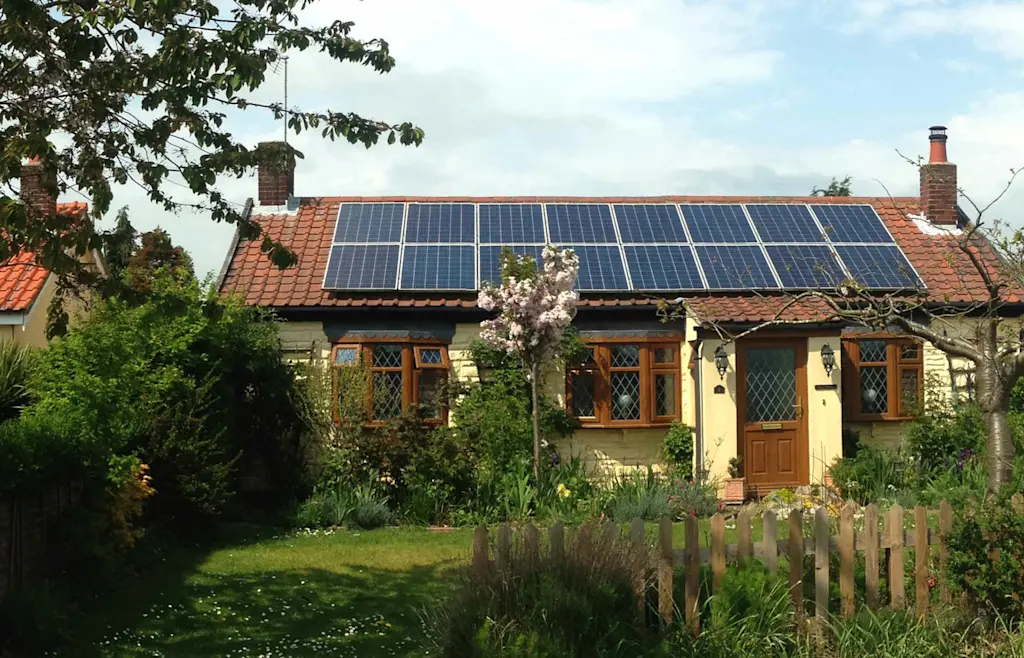
Solar panels are a great way to reduce your home's carbon footprint and energy bills. In the right circumstances, solar panels can be a worthwhile investment.
However, installing solar panels on your property is a big decision, so it's important to do your research first.
We've put together this guide to help you determine if solar panels are worth it for you, your home, and your pocket.
The benefits of solar panels
1. Lower energy bills
The main benefit of switching to solar is how much money you can save on your energy bills.
The average UK home uses 3,760 kWh of electricity per year
The average UK domestic solar panel system generates between 2,400 and 3,200 kWh per year
Based on this, you could save between 63% - 85% on your annual electricity bills by installing solar panels on your roof
2. Carbon footprint reduction
As well as the financial savings, there are also the environmental benefits.
The Energy Saving Trust estimates that the average home solar panel system could save around one tonne of carbon per year, depending on where you live in the UK.
3. Energy independence
By generating your own electricity, you'll become less reliant on the National Grid. This shields you from energy price rises and also power cuts.
However, you'll need a solar battery storage system to store excess energy, otherwise it's fed back to the grid.
Is my house right for solar panels?
Several factors affect whether solar panels are a viable option for your home. The three main considerations are: roof size, roof direction, and roof integrity.
1. Is your roof big enough for solar panels?
According to The Renewable Energy Hub, a 4kW solar panel system needs around 20m² and should cover approximately 50-70% of the annual electricity needs for an average UK household.
To work out the rough size of your roof:
Measure the length and width in metres of your building where it meets the ground
Multiply the two numbers to give you your total roof area in m²
Remember, you'll probably only be installing panels on one side, so halve the number for a more accurate figure
2. Roof direction
As you'd expect, an unshaded, south-facing roof is best for harvesting sunlight.
A solar panel system facing east or west tends to get around 15-20% less energy than one facing directly south (Energy Saving Trust)
In addition, your roof should ideally have a pitch angle of around 30-40 degrees
3. Roof strength
Solar panels are relatively lightweight, but it's crucial to assess whether your roof can support them.
The first step of your project should therefore be to consult a certified solar panel installer to evaluate the integrity of your roof.
Enter your postcode in the free search tool below to find certified solar panel installers covering your local area.
See the tradespeople we've checked and recommend for your job
Solar panel installation costs, savings, and payback period
Solar panel installation costs
The cost of installing solar panels varies, depending on the type of system you choose and how many panels you have on your roof.
A 4kW photovoltaic (PV) system, suitable for a 2-3 bedroom house typically costs around £8,000 (this includes installation)
Including an inverter and solar battery takes the average cost to around £12,000
How much can solar panels save you?
In terms of the savings to be made through having solar panels installed, you could save around £735 per year on your energy bills (based on a 4kW system).
Solar panel payback period
According to the Energy Saving Trust, the solar panel payback period with export payments can be anywhere between 11-21 years.
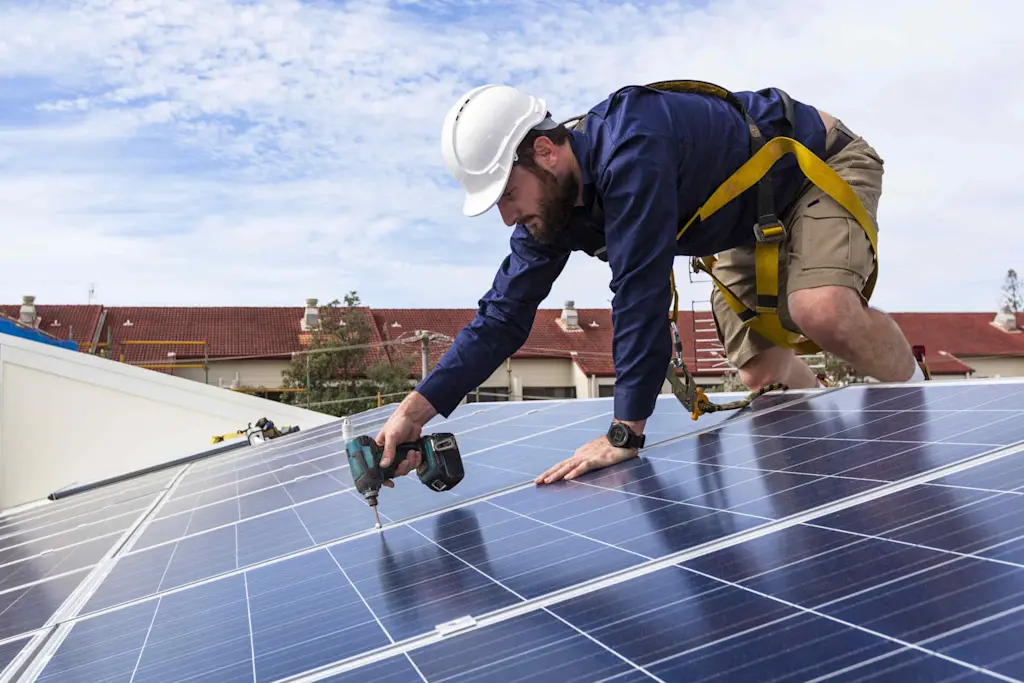
Earning money from your solar panels
Solar panels can generate more power than is needed in a home, which means you could have spare electricity.
If your solar panel system doesn't include solar battery storage, this surplus electricity is sent to the National Grid to be used by other properties.
The Smart Export Guarantee scheme
The Smart Export Guarantee (SEG) scheme is run by the government and issues payments for the solar energy you ‘export’ back to the grid.
The amount you're paid depends on the tariff set by your energy supplier, so it's a good idea to shop around for the best deal
When your solar panels are installed, it may be worth switching suppliers to find the best SEG scheme tariff
The SEG could see you earn up to £360 a year selling unused energy back to the National Grid
Maintenance costs of solar panels in the UK
Lifetime maintenance costs on solar panels are relatively low. Here's a breakdown:
Service: You should set aside around £150 a year for an annual service by a solar panel company
Cleaning: You’ll need to get your solar panels cleaned occasionally. A build-up of dirt and grime can affect their efficiency. Solar panel cleaning costs between £4 and £15 per panel
Inverter: An inverter typically lasts around 12 years and costs approximately £900
You can find a more detailed breakdown of costs to consider in our solar panel maintenance cost guide.
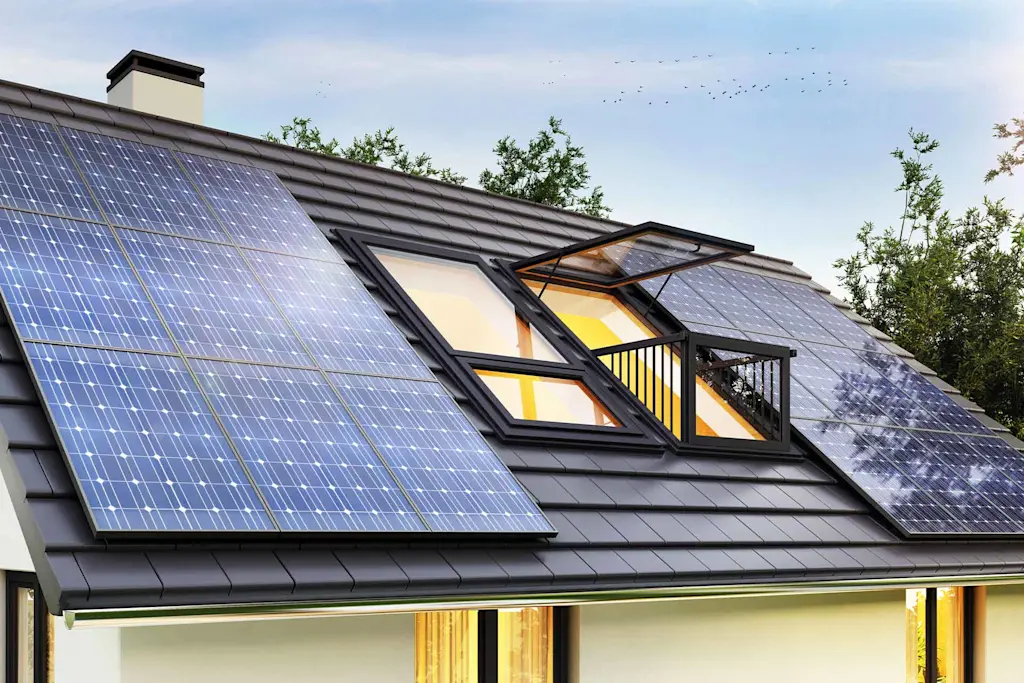
Consult a certified solar panel installer near you
The installation of solar panels should only be completed by an installer accredited by the Microgeneration Certification Scheme (MCS).
Search your postcode below to find certified solar panel installers covering your local area.
See the tradespeople we've checked and recommend for your job
FAQs
Will solar panels affect the value of my home?
Solar panels have the potential to increase the value of your home. They can improve your home's Energy Performance Certificate (EPC) rating, reduce energy bills, and protect you from rising energy prices, making them an attractive addition for many potential buyers. Especially those who prioritise sustainability.
What will be the payback time on my solar panels?
Based on figures from the Energy Saving Trust, it can take between 11- 21 years to see the cost of your installation repaid to you in savings and surplus electricity payments.
Your exact payback period will depend on your location in the UK, the direction your panels face, and how much electricity you use, among other factors. An expert will be able to provide an accurate cost-benefit analysis of solar panels based on your situation.
Can I get free solar panels?
While free solar panels were offered by companies in the past, broadly speaking, these offers no longer exist.
There are, however, several grants and schemes available to help with the cost of energy-efficient home improvements, which can include solar panel installation. See our article on solar panel grants and schemes for the most up-to-date information.
Do I need planning permission for solar panels?
In the UK, the installation of solar panels on a house roof is classed as permitted development, and as such, you usually won't need planning permission. However, there are exceptions to this rule, so it's always a good idea to check with your local planning authority in the first instance.
See the tradespeople we've checked and recommend for your job
More Expert Advice Articles
More Solar Panel Installation Articles
See the tradespeople we've checked and recommend for your job

